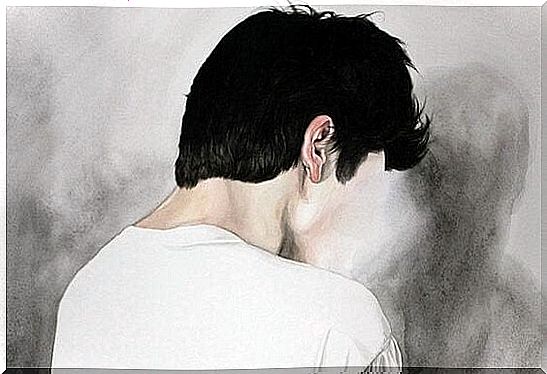The Fear Of Losing Control

When anxiety comes to you, everything starts to get blurry. It is easy for the fear of losing control to take hold of you, because it is the most difficult emotions that take control. At the same time, intrusive thoughts will paint a threatening scene in front of you from which you must defend yourself. In these moments, you begin to fear that you are going to hurt someone, so it is important to learn to deal with them.
It will not surprise anyone to know that this is one of the most common types of fear that people experience. For example, people who work with constant exhaustion at work begin to fear that all the quiet tensions they have built up will end up exploding in the worst possible way.
Another example is parents who have a lot of responsibility on their shoulders, which can feel like an uncomfortable knot with endless problems and worries. These are situations where the person lives with the fear of losing control at any time. They are afraid that they will do or say something negative to the person they love the most.
This reality is no stranger to anyone. But while it is normal for fear to be present to some degree in our daily lives, we cannot give it all the power. It would be like living with another self within you, a Mr. Hyde who brings out the worst in you.

When you give your anxiety all the control
Robert has gone through many ups and downs, resulting in a lot of anxiety. After being unemployed for almost a year, he feels bothered in all areas of his life. His parents, worried about his situation, try to encourage him and invite him to eat there every day. But at the last meal he shared with them, Robert realized that he was beginning to fear that he would lose control at any moment.
During the dinner this weekend, his brother made a small comment about his situation, and he interpreted it in the worst possible way. He overreacted emotionally – he was angry, raised his voice and said many things that he later regretted. The meal ended with the mother crying and the brother slapping his hand on the table. Robert knew he had a problem, but he lacked the resources to deal with it properly.
This situation may seem familiar to you. In that case, it is important to begin to understand all the ways anxiety can change your behavior, your thoughts, and your responses to certain stimuli.

The demon of anxiety
When people carry too many worries and too much fear and insecurity, the brain makes an almost spartan interpretation – be careful, everything around you is a threat. With this conclusion, it decides that the only way out is to defend yourself against anyone and everything.
- Your judgment ceases to be rational, and you relinquish control of your most instinctive, least reflective, least logical autopilot.
- You feel an uncomfortable feeling of reality, as if everything that happens is not real and everything is unknown to you. This is called depersonalization.
- You fall into a state of constant hyper-vigilance. You are always on the defensive, you overreact to trivial things, you form obsessive and negative thoughts, and you try to anticipate things that have not happened yet.
How can you deal with the fear of losing control?
Self-help books often preach the idea that “ in any situation, everyone has the opportunity to choose how to react; It is your responsibility to choose the best path ”. Well, this message is quite inspiring, but when you are suffering from anxiety, it is very difficult to discern what the right path is.
The anxious mind does not think, it responds. The anxious mind does not have full control over itself, and therefore does not always make the best decisions. This forces us to understand that dealing with these situations is not an easy task. It is not enough to just have good intentions when there is a lump inside you that keeps you from breathing and thinking clearly.
Now, let’s take a look at some strategies that are effective in reducing the fear of losing control.

Steps to prevent anxiety from taking control
- Try not to control yourself. Think about it for a moment – you spend most of your time controlling your frustration, hiding your thoughts, swallowing your emotions, and pretending to be in a good mood. You end up holding back so much that you have to do something cathartic and liberating. You can put everything you have inside you on the table and say how you feel loud, without fear.
- Talk about your fears and discuss them. One way to take power away from fear is to give it a name and talk to it. ” I am afraid of losing my family because I am aware that I am losing control of my emotions, and I say things that I regret later .”
- Control your mind to control your emotions. This is a premise for cognitive behavioral therapy, which is one of the best treatments for people who are afraid of losing control of themselves.
The last step requires that you free your body so that you can free your mind. This can be done in a variety of ways, including Jacobson’s progressive muscle relaxation, mindfulness , yoga or other physical exercise. These strategies will help you release the physical tension in your body and allow your mind to take a more relaxed approach.
It is possible to take control of yourself and deal with the fear of losing control, you just have to work on it.









